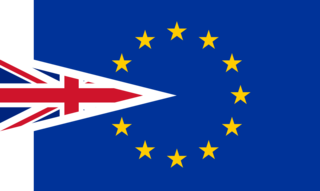Fear
Ideological Extremism, Emotion, and Attitudes to Immigration
Ideology is linked differently to socioeconomic fear and fear of immigrants.
Posted June 27, 2016

When the United Kingdom voted last week to end its membership of the European Union, it immediately became clear that the United Kingdom is not really “United.” Scotland, Northern Ireland, and many major cities in all of the home nations were more strongly in favour of remaining in the European Union, while the rural areas in England and Wales were not. Poignantly, it also became likely that the European Union faces further disintegration from within the “Union.” Of course, any union among varied nations, regions, and people is a series of interactions and relationships. It’s a lot like the variety of interactions you get at a neighborhood party. When a party ends early, you wonder about how well everyone got along. After this referendum, a key question has been whether the party broke up early not because people were having a miserable time, but because they felt like they lost control over who to invite.
As the European Union has welcomed more nations and more people from outside the Union, a sizable number of people in Britain felt resentful about being obliged to accept these more people into the country. Consequently, immigration was a major touchstone issue. Of importance, this issue was particularly divisive in the right-wing Conservative party, which had key members both in support of remaining in the Union (e.g., Prime Minister David Cameron) and of leaving it (e.g., former Mayor of London Boris Johnson).
This divisive impact of the immigration issue reminds us of an article published last year, which examined the role of political ideology in socioeconomic fears and attitudes toward other groups (van Proojien, Krouwel, Boiten, & Eendebak, 2015). In an earlier blog entry, we noted how political ideology is frequently used to provide a clue to people’s social attitudes. Political ideology is often seen as a kind of glue that binds diverse social attitudes together. However, scholars have frequently debated whether some attitudes are special in political ideology. If we consider the traditional left-right ideological distinction, one question is whether right-wing extremists are more likely than left-wing extremists to experience socioeconomic fear and to possess negative attitudes to groups that are not their own.
Jan-Willem van Prooijen and colleagues examined this so-called “rigidity of the right” hypothesis. The researchers proposed that political extremes at either end of the left-right spectrum are more likely to display these responses than political moderates.
Their study took part in two phases. In the first phase, 7,553 participants rated the extent to which they identified as being left- or right-wing on a scale ranging from 1 (very left-wing) to 10 (very right-wing). A year later, participants completed a survey containing many questions measuring their fear of current socioeconomic conditions (e.g., “I am afraid that the financial crisis will escalate into a worldwide chaos”), attitudes toward diverse social groups (e.g., police, Muslims, artists, bankers), and attitudes toward immigrants in particular (e.g., “Immigrants benefit more from social security than they contribute to it”).
Comparisons of the responses to the question about political ideology with responses to the emotion and attitude questions were revealing. In support of the scientists’ predictions, people at the extreme on both ends of the left-right dimension expressed more socioeconomic fear and more negative attitudes toward diverse outgroups. Further, the researchers found that the statistical link between ideology and negativity toward the groups was attributable to the greater socioeconomic fear held by people in the extreme left and right.
But a different pattern emerged when the investigators looked at attitudes toward immigrants in particular. On this issue, extremists on the right were far more negative in their opinions than extremists on the left. This suggests that immigration is a potentially defining issue in political ideology: although both extremes manifest socioeconomic fear and negativity toward diverse groups, immigration is a topic that distinctively separates left and right.
This research occurred in the Netherlands, where there is arguably a greater ideological spread than in most other Western nations. This makes the data particularly useful for looking at both extremes of political ideology. At the same time, the Dutch data are informative for other parts of the European Union, which may need to recognize the unique importance of immigration on the right-wing end of the political spectrum. The issue polarized the British right to the extent that it played a core role in David Cameron promising a referendum on the future of Britain in the European Union. Who knows what consequences this polarizing issue may have in the rest of Europe, the United States, and beyond.


